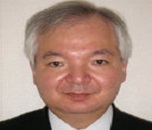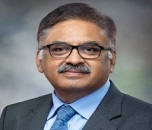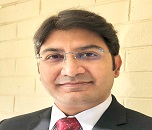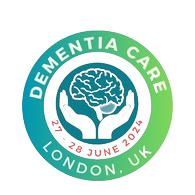Renowned Speakers

Hideo Tsukada
Senior Manager At Hamamatsu Photonics. , Japan Japan

FENG RU TANG
National University of Singapore | NUS · Radiobiology Research Laboratory, Singapore Nuclear Research and Safety Initiative Singapore

RAJENDRA D. BADGAIYAN
Professor and Chairman, Department of Psychiatry, at MetroHealth and Case Western Reserve University, Cleveland. USA

SYED HARIS OMAR
Doctor of Philosophy (PhD) in Pharmacology Australia
Recommended Global Neuroscience Webinars & Conferences
Europe & UK
Asia Pacific & Middle East
Canada
Dementia Care 2024
About Dementia Care
Dear Esteemed Colleagues and Participants,
It is with great pleasure that we extend a warm welcome to you for the 20th International Conference on Dementia and Dementia Care, scheduled to take place in the vibrant city of London, UK, on June 27–28, 2024.
As the premier gathering in the field of education research and care, this conference promises to be an enriching experience, bringing together leaders, researchers, practitioners, and advocates from around the globe. Our aim is to foster collaboration, share innovative insights, and advance our collective understanding of dementia and its multiple dimensions.
We were delighted to announce the 20th International Conference on Democracy and Democracy Care, scheduled to take place in the vibrant city of London, UK, on June 27–28, 2024. This established conference serves as a pivotal platform for global executives, researchers, health care professionals, and policymakers to convey and share cutting-edge insights in the field of education, research, and care.
Conference Highlights:
Exploring Advancements in Dementia Research: Engage in stimulating discussions on the latest breakthroughs in dementia research, including neuroscience, genomics, and innovative therapeutic approaches.
Holistic Dementia Care Practices: Delve into holistic approaches to dementia care, encompassing psychological, social, and environmental factors, with an emphasis on improving the overall well-being of individuals living with dementia.
Global Perspectives and Collaborations: Foster international collaborations by gaining insights into different perspectives on development practices, policies, and challenges from experts around the world.
Interactive Workshops and Symposia: Participate in hands-on workshops and symposia designated to enhance practical skills, share best practices, and promote a multidisciplinary approach to disability care.
Emerging Technologies in Dementia Care: Stay abreast of the latest technological innovations shaping the future of dementia care, with a focus on assistive technologies, digital solutions, and advancements in technology.
Patient Advocacy and Support: Explore initiatives and strategies for ?mpow?ring patients and their families, as well as promoting awareness and understanding of dementia within communities.
Sessions & Tracks
Track-1: Dementia
A collection of brain disorders collectively referred to as dementia cause a long-term, usually progressive loss in thinking and memory to the point where it becomes disruptive to day-to-day functioning. Common symptoms include emotional problems, language barriers, and a lack of motivation. A person's consciousness is usually unaffected. more
Track-2: Alzheimer’s disease
Alzheimer's disease (AD), also referred to as Alzheimer's, is a slowly developing neurological condition that gets worse over time. Between 60 and 70 percent of dementia cases are caused by it. Short-term memory loss, or the inability to recall recent events, is the most common early indicator. more
Track-3: Mental health & Psychiatry
Emotional and behavioral conditions reach a higher level in mental health. More than 200 categories exist for mental health disorders. A person's capacity for enjoyment of life and for striking a balance between everyday activities and efforts to develop human resilience are all included in their state of mental health. more
Track-4: Anxiety & Depression
Dementia patients often experience worry, hopelessness, and apathy. The reason they are called psychological conditions is that they may affect an individual's emotional and mental well-being. The definition of anxiety is a mental state that goes beyond simple worry or concern. Anxious feelings are a normal response to pressure, and they usually go away when the "stressor" or the stressful situation is no longer present. The self-esteem of an individual is affected by depression. It's possible for someone to lose interest in their job, hobbies, and other pursuits they usually find enjoyable. While some people may find it difficult to focus because they are anxious or angry, others may simply be fatigued, have trouble falling asleep, or sleep more than they should.
Track-5: Parkinson’s Diseases
As a chronic and progressive movement disorder, Parkinson's disease (PD) causes symptoms that get worse over time. Almost one million Americans suffer from Parkinson's disease. Even though there isn't a cure at this time, there are treatment options to control the symptoms, such as medication and surgery.
Causes and Risk Factors:
Neurodegeneration: Parkinson's disease is characterized by the gradual degeneration of dopamine-producing neurons in the substantial nigra, a region of the brain responsible for movement control.
Genetics: While most cases are sporadic, some individuals may have a genetic predisposition to Parkinson's disease. Mutations in certain genes, such as the LRRK2 and SNCA genes, have been associated with an increased risk.
Environmental Factors: Exposure to certain environmental toxins, such as pesticides and herbicides, has been suggested as a potential risk factor. However, the role of environmental factors is not fully understood.
Track-6: Dementia Management
The major objectives of treatment for dementia are to preserve quality of life and enhance behavior, mood, and cognitive function because there is no known cure. fosters a safe atmosphere stimulates communication with others. Manage behavioral symptoms, treat cognitive symptoms, treat non-pharmacological and pharmacological symptoms, and create dementia-friendly surroundings.
Track-7: Neurodegenerative diseases
Neurodegenerative diseases encompass a broad spectrum of disorders marked by progressive degeneration or death of nerve cells. It has a variety of neuropsychological effects in addition to affecting nervous tissue. This word refers to a group of illnesses that specifically impact neurons in the human brain. Genetic and environmental factors have been shown to play a significant role in the development of neurodegenerative diseases. Since age is a common factor in all forms of neurodegenerative disease, age is one of the main risk factors.
- Cognition
- Multiple Sclerosis
- Parkinson's disease
- Huntington's disease
- Neurovascular Dysfunction and Neurodegeneration
Track-8: Stages, types and Treatment of Alzheimer’s disease and Dementia
The word "dementia" is used to characterize the signs of a number of brain-related illnesses. Parkinson's disease is another common condition, as well as Alzheimer's disease. Preclinical Alzheimer's Disease, Middle-Stage Alzheimer's Disease, Late-Stage Alzheimer's Disease, Mild Cognitive Impairment Mild, and Dementia due to Alzheimer's Disease are among the stages of dementia that are commonly identified by their symptoms. The symptoms of dementia can be lessened with the use of drugs and other therapies.
- Advances in Treatments
- Therapeutic Approaches
- Drugs and Therapies
Track-9: Genetics, Geriatrics and Neuropsychology of Alzheimer
The accumulation of various molecular and cellular damage over time is what leads to ageing at the molecular and cellular level. This leads to a higher risk of illness, a progressive decline in mental and physical ability, and ultimately, death. But these changes are not consistent or linear, and they have only a passing relationship with an individual's actual age. To attain healthy aging, it is important to provide people with the means and circumstances to live the lives they choose and to be who and what they value. While many older adults have one or more health conditions that, when well managed, have little impact on their wellbeing, being free of disease or infirmity is not a prerequisite for healthy aging.
- Healthy Ageing and Functional Ability
- Age Related Disorders
- Diagnosis and Treatment
- Care for Elderly People
- Geriatric Research
- Geriatric Psychiatry
Track-10: Sleep disorders
Sleep disorders are characterized by issues with the quantity, timing, and quality of sleep, which cause discomfort during the day and functional impairment. Anxiety, depression, or cognitive disorders are among the mental health issues or medical conditions that frequently coexist with sleep-wake disorders. Sleep-wake disorders come in a variety of forms, with insomnia being the most prevalent. Other disorders affecting sleep and wakefulness include parasomnias, obstructive narcolepsy, sleep apnea, and restless legs syndrome. There is a connection between emotional and physical issues and sleep difficulties. In addition to being a symptom of another mental health issue, sleep issues can cause and worsen mental health conditions.
Track-11: Psychiatry and Psychology
The area of medicine known as psychiatry is dedicated to the diagnosis, treatment, and prevention of emotional, mental, and behavioral disorders. A psychiatrist is a medical professional who treats mental health issues, including drug abuse disorders. Psychiatrists are equipped to evaluate emotional problems from both a mental and physical perspective. People consult psychiatrists for a variety of reasons. Abrupt issues can include terrifying delusions, panic attacks, suicidal thoughts, or hearing "voices." Alternatively, they could be more persistent, like unrelenting feelings of melancholy, anxiety, or hopelessness; or they could be more functional issues that make life seem distorted or out of control.
Science studies habits and the mind; this is called psychology. Studies of conscious and unconscious phenomena, such as feelings and thoughts, are included in psychology. It is a vastly interdisciplinary academic field that bridges the gap between the natural and social sciences. The goal of psychology is to comprehend how neuroscience relates to the field. Understanding the gestures of individuals and groups is the goal shared by social scientists and psychologists.
- Class of Medications
- Antidepressants
- Anti-psychotic medications
- Sedatives and anxiolytics
- Hypnotics
- Mood stabilizers
Track-12: Child and Adolescent Psychiatry
A child and adolescent psychiatrist is a medical professional with expertise in diagnosing and treating mental, emotional, and/or behavioral disorders those impact teenagers, young adults, and their families. Families can benefit from a child and adolescent psychiatrist's medical education, professional ethics, and medical responsibility in providing all-encompassing care. The investigation and treatment of behavioral disorders and emotional issues affecting children are the main areas of focus for child psychiatry. Children's persistent emotional maladjustments are marked by an anxious reaction.
Why Attend?
Networking Opportunities: Establish connections with renowned authorities, scholars, and practitioners in the dementia care field to promote joint ventures and partnerships.
Knowledge Exchange: Through keynote speeches, panel discussions, and post-sessions, learn insightful information about the most recent clinical practices, policy advancements, and research findings.
Professional Development: Enhance your skills and knowledge through interactive workshops and symposia, gaining practical tools and strategies applicable to your work in the field.
Inspiration for Action: Leave the conference inspired and equipped to contribute to the advancement of democracy and the improvement of democracy globally.
Join us in London for an enriching experience at the 20th International Conference on Democracy and Democracy. Care as we are collectively striving to make meaningful progress in the understanding and management of dementia. Together, let's shape a brighter future for those affected by this challenging condition.
Market Analysis
It is anticipated that the global dementia management market will reach a market value of US$ 35 million in 2023 and grow at a compound annual growth rate (CAGR) of 8% from 2023 to 2033, when it will have reached US$ 75.56 million. From 2018 to 2022, the market for dementia management grew at a compound annual growth rate (CAGR) of 5%.
The market for dementia management is a subset of the healthcare industry that deals with dementia's effective management. For the management and treatment of dementia, a variety of goods and services are available in the dementia management market. Products and services in this market include medications for symptoms of mental illness, assistive technology, home care services, and memory care facilities.
Report Attribute Details
- $ 35 million USD is the anticipated market value in 2023.
- Forecasted value estimated at $75.56 million US in 2033.
- 8% CAGR is the projected growth rate from 2023 to 2033.
Requirements for VISA
The Dementia Care organizing committee is clear that we are not a part of the VISA application process. Additional documentation, such as an invitation letter, an abstract acceptance letter, and a registration payment receipt, may be of assistance.
The embassy might also require you to send additional documentation along with these.
Official Letter of Invitation: This document certifies that the conference committee board has accepted your request to register and submit a paper. It could be useful when applying for a visa because it will be in English.
* An official letter of invitation will only be sent to those who have registered to attend.
* To receive an official letter of invitation, attendees must register and submit authenticated information (such as a scan of their passport, date of birth, phone number, physical address, and photo).
* Ask the conference manager for more details.
* Only those who are able to attend the conference will receive official letters of invitation.
** THE DEMENTIA CARE ORGANISATION COMMITTEE CANNOT OVERRIDE THE MINISTRY OF FOREIGN AFFAIRS' DECISION IF YOUR APPLICATION IS DENIED, AND WE WILL NOT CORRESPOND OR DISCUSS ON THE APPLICANT'S BEHALF WITH THE IND, MOFA, OR EMBASSY. **
To Collaborate Scientific Professionals around the World
Conference Date June 27-28, 2024
Speaker Opportunity
Useful Links
Past Conference Report
Supported By
All accepted abstracts will be published in respective Conference Series International Journals.
Abstracts will be provided with Digital Object Identifier by



